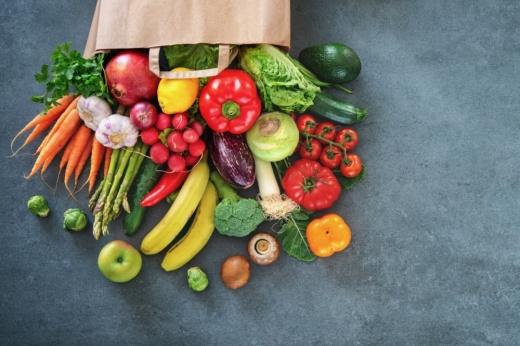City Council is set to vote Sept. 1 on a contract for the grocery concept with Go Austin/Vamos Austin, a community coalition geared toward improving health outcomes and other longstanding inequities in Austin's Eastern Crescent. The initiative will be funded with $500,000 of federal American Rescue Plan Act funds that council set aside for a community-oriented grocery project during its ARPA spending and budget discussions last year.
Council's approval of GAVA's contract will start a multiyear process involving resident engagement, project development and analysis, and the launch of a community-based food retail pilot program.
"We have Austinites who have to travel 20, sometimes 30 minutes to get to their nearest full-scale grocer. And that is simply not OK for a city like Austin; that’s prosperous," District 2 Council Member Vanessa Fuentes saId. "This initiative that I championed during the ARPA deliberation was really focused on, ‘How do we think through and deliver innovative solutions that are rooted in the community?’ And so Austin is charting a new course when it comes to how a local government gets involved with a co-op."
The proposed pilot would involve recruiting at least 300 residents interested in becoming founding members of the grocery concept, which could end up as a community-owned cooperative. If its contract is approved, GAVA's work will also include studying how the food retail concept could grow and expand elsewhere.
Residents on the eastern edge of Austin and Travis County including the Eastern Crescent have historically been underserved in terms of access to healthy food, health care facilities, green space, and infrastructure improvements and transportation. East Austin also includes several of the areas in the city most heavily affected by gentrification in recent years.
On food access alone, healthy options on the east side are limited mainly to mobile markets, food pantries and urban gardens rather than established grocery stores that are more prevalent elsewhere in town.
A recent review of Austin's food system identified only three permanent retail locations offering healthy food within the city limits east of Hwy. 183—or I-35 north of the highways' intersection. Residents in most portions of that area were also found to face multiple barriers to food access overall and far more diet-related health challenges than the rest of the city.
City documents noted the new grocery project would be somewhat unique given that local government does not typically sponsor business openings in targeted locations. However, several recent actions by city officials had called for this particular program while pointing out the cost to Eastern Crescent residents if current food access trends persist.
The city's outline of the food retail concept also referenced the many hurdles and disinvestments faced by minority communities across the Eastern Crescent in relation to food access and the difficulty associated with opening a new grocer in such locations.
"Because of historic inequities in development of neighborhoods, industry and infrastructure, many areas of the 'Eastern Crescent' do not meet strict industry customer household thresholds for [grocery store] site selection," the city document said. "This presents a challenging context in which traditional industry attraction and incentives are inadequate to meeting community needs, requiring more proactive civic incubation of a community-serving grocery store."
Given those issues, the city, community members and GAVA may also shift what the retail initiative looks like along the way. The city said the end result could be a member- or employee-owned co-op, a nonprofit store or a partnership with an existing business, among other options.
Fuentes said the community-centered model will also focus on culturally relevant food options and pricing that fit best for neighborhood residents.
"They’re going to develop a feasibility study, a business plan, a model in how we’re able to deliver a grocery store co-op while engaging the community at every step of the process," she said.
The food retail initiative is one of several pieces of regional food system management moving forward this year after dedicating several million ARPA dollars to addressing food insecurity last year.
City Council is also set to vote Sept. 1 on a $125,000 workforce development program contract with Good Work Austin for the management of GIFT Community Kitchen, a nonprofit cafe and educational space. And in July, council approved a $250,000 consulting contract with Woollard Nichols and Associates to develop a new five-year vision plan for the Austin-Travis County food system covering current conditions and proposals for equitable improvements in the future.





